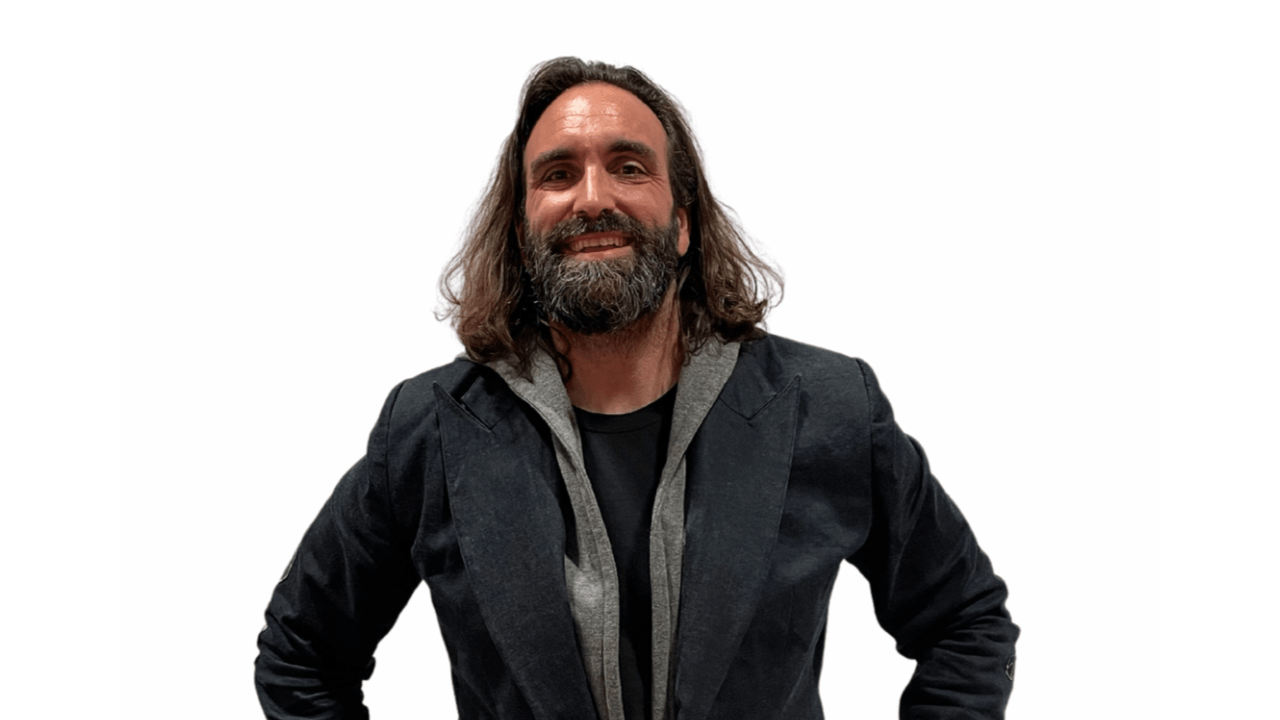Today, we are pleased to have as our guest Jaime Chicheri, creator of the RevenueKnowmads community and the ecosystem of projects collected in Revenue Management World to talk about good leadership and the importance of taking care of workers in any company, in this case: in hospitality.
As Jaime says, "the secret is love, love and more love, putting yourself in the other person's shoes". We focus a lot on the customer, which is undoubtedly essential, but what about the employees, the fundamental pillar of any operation?
1. First of all, tell us a little bit about who you are, what you like to do, what your interests are.
"Who am I" is a difficult question to answer. Whenever I am asked about this, I think that the only way to know who you are is to find out everything you are not. And since I still don't know everything I'm not I don't dare to answer this question.
I can tell you what I do:
I like to define myself as a "People Revenue Manager". Revenue Management, a technique in which I have been specializing since 2009, is nothing more than getting the maximum benefit from each business unit, and that is precisely what I do with the different professionals I mentor: I help them to reach their maximum potential.
I am a Mentor and Coach for entrepreneurs and professionals of any sector (although specialized in the hospitality sector) work that I do from https://www.revenueknowmads.com. I am also the author of the first two books on Revenue Management, Marketing and Hotel Distribution in the world written in Spanish, creator of the Membership Site Hotel Marketing School, The Hospitlaity MBA, the business school eRevenue Masters, the digital marketing agency Marketing Surfers, the Outstanding Hoteliers method, the Business Intelligence tool bi4hoteliers, the Head Hunter TrabajoRevenueManager.com and the entire ecosystem of projects collected in RevenueManagementWorld.com
Personally, I practice daily Vipassana meditation; I love swimming, with such passion that I swam across the Strait of Gibraltar in 2019, a circumstance that I took advantage of to support a charitable cause for which we managed to raise more than 13,000€; and I also enjoy my travels in my house on wheels @juanitathevan (you will find it on Instagram). If you want to know more about me I invite you to visit. jaimechicheri.com
2. What are the main responsibilities and challenges facing hotel directors and managers today, and how can they address these challenges?
Answering this question would take a whole book, as we could talk about challenges in terms of product, mindset, marketing, sales, advertising, finance or team.
I have been focused all my life on helping companies improve their results, through marketing, revenue management, and cost optimization. Now I am much more focused on people through mentoring and coaching because I have realized that it makes no sense to work in all the above mentioned areas if you do not have a cohesive, trained, aligned and balanced team.
3. In your experience as a coach and mentor in the sector, what do you see as the most common mistakes that are made when managing teams in a hotel and that should stop being made?
The main mistake is to treat them as figures and therefore, this mistake is basic since the company is conceptualized. Every company should have a coach, either external or internal, who is aware at all times of how the team is aligned with the business objectives and can make them see the tools that each one has internally to ensure that these objectives are met.
Every single person on the team, from the manager down to the last intern, who came in should have a sense of empowerment, that they are important, that they have a voice, and that they can grow with the company.
4. Do you think that workers are given the same importance as the customer experience in a hotel? It is certainly related, but it seems that sometimes the welfare, training and conditions of workers in the sector are a bit neglected. What do you think?
Every company has two customers: the internal and the external. The external one is the one you call "client in a Hotel" and the internal one is the employee (I like to call him collaborator).
You are absolutely right that we tend to pay attention to the one who pays us (external) and not the one we pay (internal) and this is just a reflection of what happens in our lives. Most people spend more time and effort on making happy those who pay them (employers, clients) than those who do not bring them financial benefit (friends, family).
If you think about it, it doesn't make sense, but that's also the beauty of life, to realize this and, once you are aware, to fight to change what matters most to you.
5. Now tell us about best practices in the management of hotels and their teams. What strategies or best practices would you recommend?
Well, to answer this question I would divide it into 3 phases:
PRE: you have to be clear about your mission, your vision and your values and you have to transmit them to everyone who is going to join your company. But not only this, every so often you have to meet with each person in your team and confirm that this person is still aligned with it.
DURING: as indicated in the previous point, there must be a conscious and careful relationship.
POST: unless you are a very large and well-traveled company, it is quite likely that your employees will want to explore other options throughout their careers.
It is very clear to me that successful companies do not seek to retain their employees but to give them the confidence that, if at some point they want to fly and explore, they should have the confidence to tell you so that you can accompany them on their hero's journey (we all have one) and they can help you fill their gap with a talent similar to the one leaving the company.
6. What are your tips for recruiting, training and retaining key personnel, such as the reception team, cleaning staff and chefs?
Love, love, love, love, and I think I forgot an ah, yes! LOVE.
In short, put yourself in the shoes of the people who will be joining your organization and think about how you would like to be treated throughout the process.
I know this may sound idyllic, especially talking about positions like the ones you mention that have a high turnover and that nowadays are very difficult to find and retain, but here is the good news: your company is not the only one that has this problem and if you are able to convey to the people who will trust you and with whom you are going to start a relationship that they are not just another number, you will have a differential value that few others have.
7. Technology is playing an increasingly important role in team management in the HORECA sector. What are the technology trends that a hotel director or manager should be aware of and how can they be leveraged to improve worker experience, customer experience and operational efficiency?
One of the things I teach, and in which I am an expert, is personal productivity: that is, doing more in less time to improve people's quality of life.
In recent years a multitude of tools like yours have appeared, niikiis (although not as complete) that help to make everything easier in an organization. If we let the machines do the work for which human beings are dispensable, each team leader will have more time to take care of the humans that make them up.


 Employee database
Employee database  Documents and e-signature
Documents and e-signature  Reporting and analytics
Reporting and analytics  Payroll and incidents
Payroll and incidents  Time and Attendance Software
Time and Attendance Software  Shifts and task list
Shifts and task list  Absences & time-off
Absences & time-off  Workflows
Workflows  Expense management
Expense management  Recruitment and selection software
Recruitment and selection software  Onboarding
Onboarding  Training and procedures
Training and procedures  Internal communication
Internal communication  Performance assessment software
Performance assessment software  HR surveys and forms
HR surveys and forms  Chatbot
Chatbot 